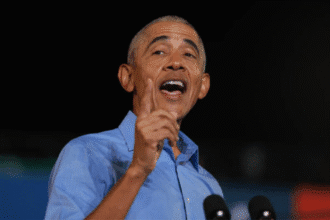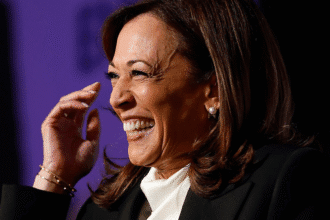Aiming to revamp federal elections, US President Donald Trump has issued an executive order imposing significant changes, such as asking voters to prove their citizenship and limiting when states may accept mail-in ballots. A substantial component of the rule, the new voter ID requirement, fuels discussion on how it will affect election accessibility.
The order “Preserving and Protecting the Integrity of American Elections” was signed Tuesday at the White House.
“Elective fraud. You are familiar with the term. Hopefully, we will be ending it here. At least this will help to bring it under control,” Trump said as he signed the measure.
Citing issues with election integrity, Trump and his supporters are pushing for stricter voting rules more generally, and this action fits in with that. Proponents contend that voter ID rules are essential to stop fraud and guarantee that only qualified people participate in elections. Critics counter that these policies unfairly affect elderly voters, low-income people, and minorities, who can have trouble gathering the required paperwork.
The Order: How Might Voter Access Change?
Experts caution that the sequence may deny millions of Americans who lack simple access to legal documentation like a passport or an improved driver’s license proving their citizenship their right.
Non-citizens are already not allowed to vote in elections under present federal legislation. Prohibiting non-citizens from voting in federal elections, the Illegal Immigration Reform and Immigrant Responsibility Act of 1996. Although every state mandates voters declare their citizenship on a registration form, this form does not require any documentation. The new executive order would reverse that, basing access to federal money on adherence to stricter voter ID standards.
Civil rights organizations have expressed worries that requesting evidence of citizenship could erect more obstacles for particular voter groups. Many Americans, particularly those from underprivileged homes, lack passports or verified birth certificates. Getting these records can be expensive and time-consuming, which would discourage qualified voters from casting ballots.
What Opinions Experts Exude Regarding the Order's Legality?
Legal authorities doubt the executive order’s enforceability as the US Constitution gives states great power to oversee their elections.
“The president cannot override a statute passed by Congress that says what is required to register to vote on the federal voter registration form,” Wendy Weiser from the Brennan Center for Justice at New York University stated.
In a blog post, UCLA law professor Rick Hasen commented on the sequence, noting that local governments control elections. “If left to stand, the order would radically shift power to the federal government,” he said.
Officials from several states that handle elections have also voiced doubts about the decree’s execution. Many state laws already set voter identification standards, and states could object to federal directives restricting their authority over election procedures. Legal experts believe some states would contest the court’s decision, prolonging the legal conflict.
Suggested changes for mail-in ballots?
The directive also targets mail-in voting. It seeks to ban states from accepting postal ballots obtained after Election Day. Eighteen states now let ballots come later yet be counted if they were postmarked on or before Election Day. Under the new arrangement, those states must follow more rigorous timetables or risk losing federal money.
Though several studies and investigations have found little proof to support this allegation, Trump has consistently voiced worries about mail-in votes, claiming they help to enable electoral fraud. Though analysts note the rareness of illicit voting cases, the voter ID requirement is also supported as a tool to fight fraud.
Election authorities contend that the rule might disproportionately impact voters in rural areas, military personnel, and overseas voters—whose ballots would arrive later. Mailing votes before the deadline in earlier elections have often been delayed, owing to postal service interruptions or logistical problems. Rejecting these ballots, according to critics, could unfairly exclude legal voters.
What are the political responses?
Arguing that the order unfairly affects underprivileged groups, including low-income voters, older people, and rural people who may have trouble getting the required identity documentation, Democrats and supporters of voting rights have sharply attacked the decision.
Concerns about voting suppression have caused past attempts at voter ID legislation passing in Congress to fail. Critics contend that the new executive order is an attempt by executive action to circumvent parliamentary procedures and impose further voting limitations.
Republicans, on the other hand, have hailed the order as a crucial measure to guarantee elections. Many GOP legislators have long argued for stricter voter ID rules, contending that they boost public confidence in the democratic system. A Republican senator supporting the system remarked, “Ensuring that every vote cast is legitimate is fundamental to our democracy.”
Politicians from both sides are exploiting this executive order to mobilize their respective voting bases, so political observers believe it will become a big topic in the next elections. The argument over voter ID rules is expected to get more heated, possibly influencing campaigns at the national and state levels.
In what sense does this differ from other voting rules?
Every state defines its rules on voter ID requirements and mail-in ballot deadlines, creating a patchwork of voting laws in the United States. While some states, like California and New York, have more lax standards, others, like Georgia and Texas, already have rigorous voter ID requirements.
Voter ID rules differ significantly elsewhere. While many European nations require government-issued IDs to vote, they generally supply them for free, guaranteeing accessibility for all people. Unlike other countries, the US lacks a uniform national ID system, so some people find it more challenging to get voter identification.
Legal Challenges to the Order?
Court challenges to the order’s legal foundation are inevitable. Given states’ constitutional power over their election procedures, legal disputes over the decree’s execution are expected.
The American Civil Liberties Union (ACLU) and other advocacy organizations have proposed challenging the directive. “We will fight this in court; this is a direct attack on voting rights,” an ACLU spokesman remarked.
Though many think it will set the stage for a protracted legal and political struggle over voting rights, voter ID laws, and federal election policy in the United States, it is unknown if the order will finally stand. Court decisions on this matter might significantly affect the next elections and the balance of power between federal and state governments in controlling voting rules.
The future of voter ID laws in the US is unknown, given the expected lawsuits and political debate raging. As the conflict progresses, supporters of the order and those against it are getting ready for what might be a historic case in election law.








